Private Enterprise Value readers and podcast listeners frequently ask what I am reading; here’s a quick update.
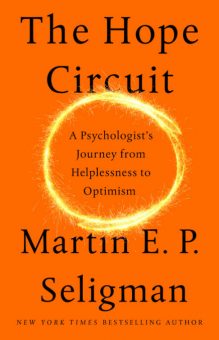 The Hope Circuit. (Seligman, 2018). Marty Seligman is one of the most purposeful, intentional thinkers I have ever worked with—hell, have ever met—and his autobiographical story manages, like the man, to be wonderfully insightful and laugh-aloud entertaining at the same time. There were plenty of moments where I glanced at my watch knowing I had some pressing non-reading thing to do, but deferred that and moved onto more of the colorful story as I flinched at some of the prickly life learnings, or laughed aloud at the petty trivia of academia that he bad-humoredly didn’t put up with. Marty is among other things, the acknowledged Founder of the field of Positive Psychology, and has had a massive impact on all of Psychology—analogous to Kahneman & Tversky’s contribution to Behavioral Economics now impacting all of Economics. I don’t know if an invitation to Stockholm is imminent, but it ought to be as without a doubt, he has transformed the field (a Nobel is not awarded in psychology). The later years of his story may be pretty well-known to many of us. But those early years struggling with the aloneness that comes from being an independent thinker, and some of the isolation of looking at his chosen field of psychology from the outside, inspired empathy and personal identification (at least in me). There are only a few authentic world-class entrepreneurs in higher education and Marty is one. I once lightly commented to Marty that I thought that the University of Pennsylvania deserved a medal for putting up with him being such a crap rule follower. He fixed me with his laser stare and replied he thought if a medal was going to be awarded, he deserved it for sticking with Penn. In this book, he shares his gift with us; I think the reader is the one who gets the medal. Read.
The Hope Circuit. (Seligman, 2018). Marty Seligman is one of the most purposeful, intentional thinkers I have ever worked with—hell, have ever met—and his autobiographical story manages, like the man, to be wonderfully insightful and laugh-aloud entertaining at the same time. There were plenty of moments where I glanced at my watch knowing I had some pressing non-reading thing to do, but deferred that and moved onto more of the colorful story as I flinched at some of the prickly life learnings, or laughed aloud at the petty trivia of academia that he bad-humoredly didn’t put up with. Marty is among other things, the acknowledged Founder of the field of Positive Psychology, and has had a massive impact on all of Psychology—analogous to Kahneman & Tversky’s contribution to Behavioral Economics now impacting all of Economics. I don’t know if an invitation to Stockholm is imminent, but it ought to be as without a doubt, he has transformed the field (a Nobel is not awarded in psychology). The later years of his story may be pretty well-known to many of us. But those early years struggling with the aloneness that comes from being an independent thinker, and some of the isolation of looking at his chosen field of psychology from the outside, inspired empathy and personal identification (at least in me). There are only a few authentic world-class entrepreneurs in higher education and Marty is one. I once lightly commented to Marty that I thought that the University of Pennsylvania deserved a medal for putting up with him being such a crap rule follower. He fixed me with his laser stare and replied he thought if a medal was going to be awarded, he deserved it for sticking with Penn. In this book, he shares his gift with us; I think the reader is the one who gets the medal. Read.
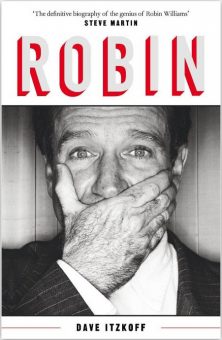 Robin. (Itzkoff, 2018). How is it that everyone in the world—e v e r y o n e—loved Robin Williams, yet he loved himself so little that in the end, he suicided? Did he ever transcend “The Gap”? This biography follows Robin from birth through a challenging adolescence to unremarkably non-graduation from college; Juilliard acting lessons, revolutionary standup, those blistering improv sessions, the insightful-to-the-bone impersonations, movie after movie, TV special after TV special, Academy Awards, three supportive wives, a gaggle of children, all the while living with increasing psych pain, loneliness, and isolation inevitably leading to medicating that pain with alcohol, cocaine, and every other illegal street drug he could lay his hands on. Was his genius related to how he saw the world so differently from the rest of us, how he never felt the warmth of the culture, only the pain? Everyone around him loved him and yet were unable to help him get to the source of pain, the trauma he felt. Instead (incredibly, like all of our pop culture) with the best of intentions, they focused on treating the symptoms of the pain (the alcohol and drugs) instead of the pain itself. The result is systematic, predictable, and…tragic. Look, I understand well-meaning, unskilled family members and well-intentioned amateurs confusing symptom and problem. But why do we tolerate professionals we hear even today constantly chattering about opioid addiction instead of digging down deep to discover and deal with the pain that those who may be using opioids are trying to medicate? Whether the pain is neurochemical-based or psychological in origin, we are a culture preoccupied with symptoms, aren’t we? What do you think? Are we fearful, unskilled, or just too complacent to dig down into the messy stuff and do the hard work to address the source of pain? The tragic-comic cover photo may just about say it all. If you love the movie industry circus or if you are obsessed with Robin Williams, you may enjoy this one. If not, you can safely skip.
Robin. (Itzkoff, 2018). How is it that everyone in the world—e v e r y o n e—loved Robin Williams, yet he loved himself so little that in the end, he suicided? Did he ever transcend “The Gap”? This biography follows Robin from birth through a challenging adolescence to unremarkably non-graduation from college; Juilliard acting lessons, revolutionary standup, those blistering improv sessions, the insightful-to-the-bone impersonations, movie after movie, TV special after TV special, Academy Awards, three supportive wives, a gaggle of children, all the while living with increasing psych pain, loneliness, and isolation inevitably leading to medicating that pain with alcohol, cocaine, and every other illegal street drug he could lay his hands on. Was his genius related to how he saw the world so differently from the rest of us, how he never felt the warmth of the culture, only the pain? Everyone around him loved him and yet were unable to help him get to the source of pain, the trauma he felt. Instead (incredibly, like all of our pop culture) with the best of intentions, they focused on treating the symptoms of the pain (the alcohol and drugs) instead of the pain itself. The result is systematic, predictable, and…tragic. Look, I understand well-meaning, unskilled family members and well-intentioned amateurs confusing symptom and problem. But why do we tolerate professionals we hear even today constantly chattering about opioid addiction instead of digging down deep to discover and deal with the pain that those who may be using opioids are trying to medicate? Whether the pain is neurochemical-based or psychological in origin, we are a culture preoccupied with symptoms, aren’t we? What do you think? Are we fearful, unskilled, or just too complacent to dig down into the messy stuff and do the hard work to address the source of pain? The tragic-comic cover photo may just about say it all. If you love the movie industry circus or if you are obsessed with Robin Williams, you may enjoy this one. If not, you can safely skip.
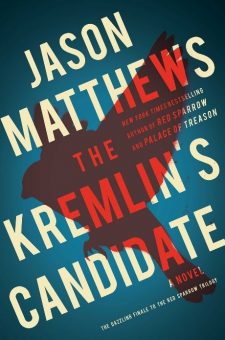
The Kremlin’s Candidate: A Novel (The Red Sparrow Trilogy Book 3) (Matthews, 2017). I am only sorry that this is the third book in a trilogy, because all three were page turners with more than a passing resemblance to what is actually happening in the world today. Author Jason Matthews is reputed to be a more than thirty-year veteran operator at the CIA and more than that—he can write. The first two novels in the trilogy The Red Sparrow, and Palace of Treason were John le Carre’ like. Matthews earned the critical acclaim he received for the first two novels; I wish it were more than a trilogy. Word is that The Red Sparrow will soon be released as a major movie starring Jennifer Lawrence, produced by 20th Century Fox. Read.
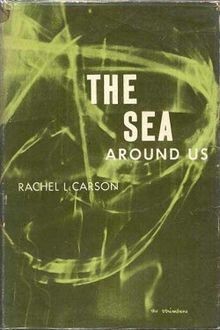 The Sea Around Us. (Carson, 1951). Okay, the secret is out: I love books and I love old books. To me printed books are the most amazing bargains today when measured on a learning-aesthetic/divided by/cost metric, and that especially goes for interesting old books. Hear me: we will look back in a few decades and realize that these were the golden days of printed books and that they were one of the great growth investments of our time.
The Sea Around Us. (Carson, 1951). Okay, the secret is out: I love books and I love old books. To me printed books are the most amazing bargains today when measured on a learning-aesthetic/divided by/cost metric, and that especially goes for interesting old books. Hear me: we will look back in a few decades and realize that these were the golden days of printed books and that they were one of the great growth investments of our time.
So, I don’t remember where I discovered my copy of The Sea Around Us. But I treasure it. It’s a beat-up hardcover with an interesting ocean green colored cover. Can’t tell if the swirls and whorls on the cover were intentionally printed on it to imitate the ocean, or are merely an artifact of sitting around in a damp cardboard box in someone’s boat somewhere.
In reading this book, I learned that way, way before Silent Spring, Rachel Carson had a lot to say about the environment in general and the oceans specifically. She captures the mystery and allure of the ocean with a memorable blend of artful creativity and scientific expertise. It turns out we would do well to read her carefully and thoughtfully before jumping to conclusions on what she really thought about the environment. Those who conflate rising sea levels with global warming and/or inevitable environmental apocalypse will not find an ally in Carson. Here (like other very personally written works) we get to read her mind, without any kind of media/political filter. She took a long—really really long—term view, believing that humans are not on an irreversible path to environmental suicide. As we live in a world with more abundance—of almost everything—we care more about the environment, find ways to protect it, and are more capable of paying the costs of doing so. This captivating and enlightening (at least to me) little book provides an incredibly timely reminder of both the fragility and the positive resilience of the ocean and the incredible life within it. Reading her, she was the first Eco-Modernist, or at least an Earth Optimist. Read.
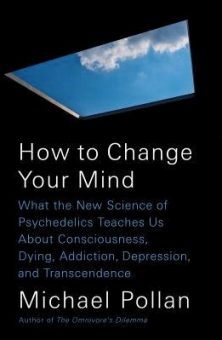 How to Change Your Mind: What the New Science of Psychedelics Teaches Us About Consciousness, Dying, Addiction, Depression, and Transcendence. (Pollan, 2018). I am guessing that this book foreshadows the introduction of an important national discussion on the use of psychedelics generally, and specifically in the treatment of depression, PTSD, addiction, and interestingly, possible end-of-life care. Michael Pollan is one of those authors who, with scholarly research, coupled with an attracting writing style, make this subject completely engaging. He explores the background of psychedelics (mostly LSD and psilocybin) and the great promise they show in treating a host of medical and psychological maladies. He describes the basic neuroscience of how these drugs work on our brains (including in one memorable chapter, on his own in a controlled personal experimentation). His subsequent insights and philosophical wonderings provide considerable food for thought (as he’s forced to confront his own fears, hesitations, beliefs, and ego). Readers like me who grew up in the 60’s know that psychedelics have in this country, had a history colored with fear and general apprehension as “out there” substances. Yet, as Pollan makes clear in this work, the attitude towards these remarkable chemicals is changing rapidly (as more studies show their unparalleled promise), with a cultural change—I am guessing—just on the horizon. He’s made me seriously curious.
How to Change Your Mind: What the New Science of Psychedelics Teaches Us About Consciousness, Dying, Addiction, Depression, and Transcendence. (Pollan, 2018). I am guessing that this book foreshadows the introduction of an important national discussion on the use of psychedelics generally, and specifically in the treatment of depression, PTSD, addiction, and interestingly, possible end-of-life care. Michael Pollan is one of those authors who, with scholarly research, coupled with an attracting writing style, make this subject completely engaging. He explores the background of psychedelics (mostly LSD and psilocybin) and the great promise they show in treating a host of medical and psychological maladies. He describes the basic neuroscience of how these drugs work on our brains (including in one memorable chapter, on his own in a controlled personal experimentation). His subsequent insights and philosophical wonderings provide considerable food for thought (as he’s forced to confront his own fears, hesitations, beliefs, and ego). Readers like me who grew up in the 60’s know that psychedelics have in this country, had a history colored with fear and general apprehension as “out there” substances. Yet, as Pollan makes clear in this work, the attitude towards these remarkable chemicals is changing rapidly (as more studies show their unparalleled promise), with a cultural change—I am guessing—just on the horizon. He’s made me seriously curious.
Pollan has had riveting recent interviews on well-known podcasts including Tim Ferriss, Aubrey Marcus, and Kara Swisher. Read.
References and Further Reading:
“In my whole life, I have known no wise people (over a broad subject matter area) who didn’t read all the time – none, zero. If you get into the mental habit of relating what you’re reading to the basic structure of the underlying ideas being demonstrated, you gradually accumulate some wisdom. Read. Read. Read.” – Charlie Munger
Produced and edited by Mari Lister.
© 2024 Bigelow LLC. All rights reserved.

